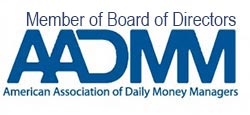 According to a report by AARP, the rate of elder financial exploitation has more than doubled since the pandemic began with COVID-related scams resulting in an estimated $100 million in losses in 2020 alone. In addition, older adults are not the only victims. In 2021, the Federal Trade Commission (FTC) found that adults between 18 and 59 were 34% more likely than adults over 60 to report losing money to fraud. Sadly, while most of the crimes reported in the news involve strangers, family members and other trusted individuals steal twice as much money as strangers. As a result, everyone needs to understand how to protect themselves and their loved ones. A few tactics that can help include the following:
According to a report by AARP, the rate of elder financial exploitation has more than doubled since the pandemic began with COVID-related scams resulting in an estimated $100 million in losses in 2020 alone. In addition, older adults are not the only victims. In 2021, the Federal Trade Commission (FTC) found that adults between 18 and 59 were 34% more likely than adults over 60 to report losing money to fraud. Sadly, while most of the crimes reported in the news involve strangers, family members and other trusted individuals steal twice as much money as strangers. As a result, everyone needs to understand how to protect themselves and their loved ones. A few tactics that can help include the following:
Educate Yourself on Your Finances
Financial literacy is not taught in most schools so many adults don’t understand financial basics, such as budgeting, managing credit and debt, balancing a checkbook, and investing. This is often an issue for spouses who left financial matters to one spouse during their marriage but that spouse died or the couple got divorced, leaving them struggling to handle finances on their own. A lack of financial experience can make individuals more vulnerable to scams.
Have Good Cybersecurity Practices
Keep your virus protection current. Don’t use common words, children’s names, birthdates, and other easily determined passwords, and don’t use the same password for more than one account. Also, avoid clicking on links in an email that you received unexpectedly, the sender seems suspicious or you are being asked to verify personal or account information. Go to the company’s website by typing in the URL or call them to determine if it is a legitimate email.
Actively Monitor Your Financial Accounts
Unfortunately, thieves have numerous ways to access your financial accounts and credit cards. To protect yourself, you should set up alerts from your credit card company or bank that let you know when a purchase or transaction has occurred. Review monthly statements carefully and check your credit report regularly.
Talk to Older Loved Ones About Their Finances
This may be a sensitive discussion but if your loved one is having cognitive or other health difficulties, they are more likely to fall prey to financial abuse from strangers as well as people they know, such as a family member, neighbor, friend, home care aide, or other person. Communicating regularly with your loved one can help you identify potential problems.
Stay Up-to-Date on Scams
For more information on scams and recognizing the signs of financial abuse, visit websites like these from AARP, the FTC, the Department of Justice, and the IRS.
Get Help If You Are Having Trouble Managing Your Finances
A trusted professional such as a daily money manager can help you or a loved one by paying bills, dealing with creditors and insurance companies, monitoring financial accounts, and handling other daily financial matters. A daily money manager can also act as a fiduciary (a power of attorney, trustee or an executor if and when that’s needed), in which case, he or she is legally obligated to act in your or your loved one’s best interests.
If you have concerns about managing your own or your loved one’s daily finances, contact us for a free consultation.



